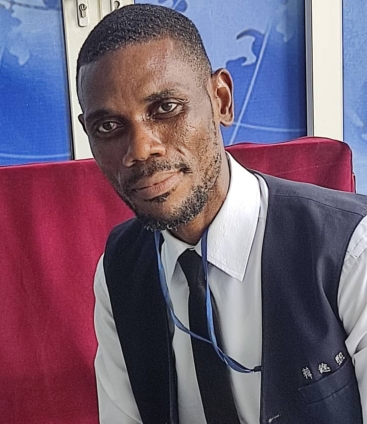
Audio By Carbonatix
Francis Ahovi, a security analysts and Executive Secretary of Global Security for Africa Research and Good Governance (GLOSARGG), believes that the right individuals with the necessary experience to resolve the longstanding Bawku conflict in the Upper East region are often excluded from the mediation process.
Speaking about the conflict in light of President John Mahama’s recent commitment to resolving the issue, Mr Ahovi commended the President for the initiative. However, he argued that the “sending a sheep to a china shop” approach would not lead to a resolution.
He explained that by the “sending a sheep to a china shop” analogy, he meant that successive governments have failed to involve experienced security experts and the necessary stakeholders in addressing the matter.
“We cannot keep adopting what I call the ‘sending a sheep to a china shop’ approach. It means that if a sheep or goat were placed in a Chinese shop, it wouldn’t find any grass to graze on, because what’s available are canned foods, noodles, and other Chinese foods. The animals are used to cassava leaves, corn, and things they are familiar with and these things cannot be found in the China shop. That’s exactly what’s happening with the Bawku conflict. We are sending people without the requisite skills and strategies to solve the issue,” he explained to MyJoyonline.com
Mr Ahovi further stated that those typically involved in mediation efforts often possess popularity but lack competency. “They just have big names; we need people who are qualified and capable of doing the work to resolve the issue,” he said.
He argued that those who would be selected for the President’s mediation efforts should be thoroughly vetted to ensure they have no personal interests in the area. “Do the factions involved in solving the issue have any connection to the conflict? When we dig into the root causes, do these individuals have any political or historical ties to it?” he questioned.
The security analyst, a product of the Kofi Annan International Peacekeeping Training Centre, suggested that a “localized approach” be adopted. “The people in the area must be sensitised in such a way that their awareness level increases, and they gain what I call self-consciousness, where they will understand the importance of human life,” he added.
Mr Ahovi also stressed that the approach used to resolve conflicts in Accra should not be applied to the Bawku crisis. “We cannot rely on the curriculum we use for people in Accra to resolve the Bawku conflict,” he said.
The Bawku conflict, which has spanned many years, has claimed many lives in the disputed areas. Despite numerous mediation efforts, clashes continue between the locals, resulting in property destruction, gunfire, and other unlawful acts.
Latest Stories
-
Analyst says Burkina Faso killings were a calculated signal to Ghana
2 hours -
Veep extends Ramadan greetings, donates to Cape Coast Central Mosque
2 hours -
UBIDS secures $6.6m prefabricated classroom complex to end space deficit
4 hours -
Gold Fields Ghana Foundation deepens childhood cancer awareness drive; invests $4.8m in community health
4 hours -
Iran students stage first large anti-government protests since deadly crackdown
4 hours -
Fire guts Saboba Hospital’s Children Ward
5 hours -
Interior Ministry extends aptitude test dates for WASSCE applicants in 2025/26 security services recruitment
6 hours -
National Investment Bank donates GH₵1m to support GAF barracks redevelopment project
7 hours -
Gomoa-East demolition: 14 suspects remanded by Kasoa Ofaakor Court
8 hours -
Divers recover bodies of seven Chinese tourists from bottom of Lake Baikal
9 hours -
From windstorm to resilience: How Wa school is growing climate protection
9 hours -
Reclaiming the Garden City: Dr. Kwame Adinkrah urges Kumasi to rein in billboard proliferation
10 hours -
Bursar of Ghanata SHS arrested for alleged diversion of student food supplies
10 hours -
Trump says he will increase global tariffs to 15%
10 hours -
Bogoso-Prestea mine records first gold pour after 24-month shutdown
10 hours

